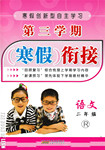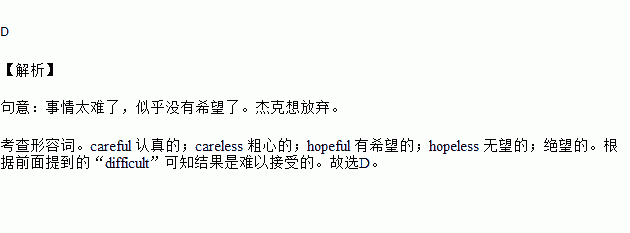题目内容
Things are so difficult that it seems ________. Jack wants to give up.
A.careful B.careless C.hopeful D.hopeless
练习册系列答案
 寒假创新型自主学习第三学期寒假衔接系列答案
寒假创新型自主学习第三学期寒假衔接系列答案
相关题目
请根据表格内Zhang Ying 的一些表现的提示用英语写一篇短文,把她介绍给你的外国朋友Mary。字数要求:不少于80词
Time | Good habits | Bad habits |
In the morning | Get up early | Eat junk food for breakfast |
In class | Ask some questions | Quarrel(争吵)with her classmates sometimes |
After school | Always exercise | Go home late |
In the evening | Help her parents with housework | Watch TV or play computer games for more than an hour |


 B.
B. C.
C. D.
D.